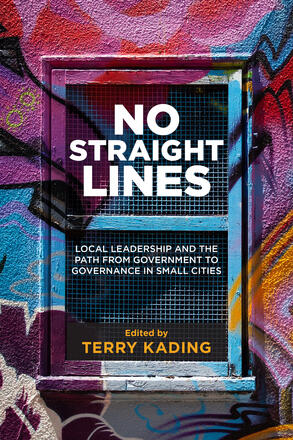
No Straight Lines
Local Leadership and the Path from Government to Governance in Small Cities
Description
Small cities face intricate challenges. No Straight Lines provides the basis for a refined model of community engaged leadership and research designed to realize equality of quality of life.
With particular attention to the small city of Kamloops, BC, this collection explores the impact of extended, short term, and unique leadership collaborations. It addresses local responses to homelessness, sustainability, food security, and more. It offers insight into the role of the university in the small city as a place of learning, and a contributor to positive change.
Based on active engagement, this book reveals the barriers present in addressing local needs, and the transformations that can be achieved through effective collaboration. It offers valuable insights into flexible practices that respond to the needs of community organizations and recognizes the challenges associated with resource constraints and capacity limitations. This unique collection provides new insights into the twists and turns of leadership and learning in the small city.
Reviews
This book provides really interesting and valuable insights into the realities of life in small cities-the challenges they face, and the need for community-based solutions.
- Mark Seasons, The Canadian Journal of Urban Research